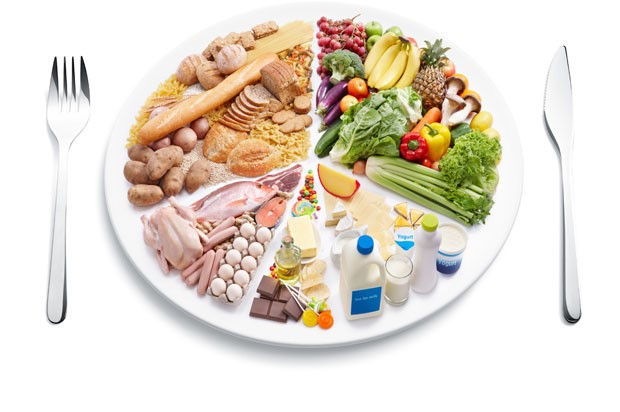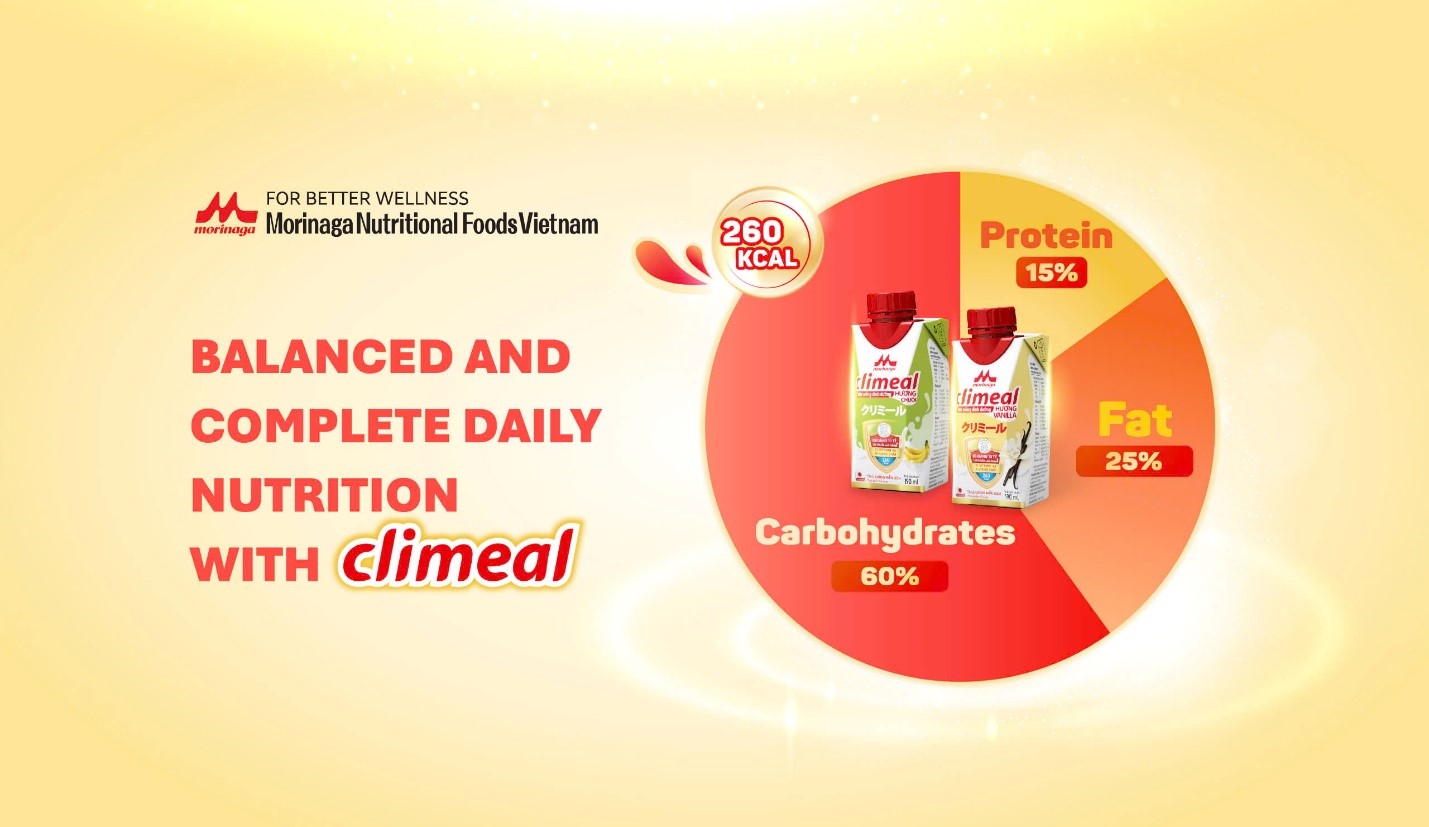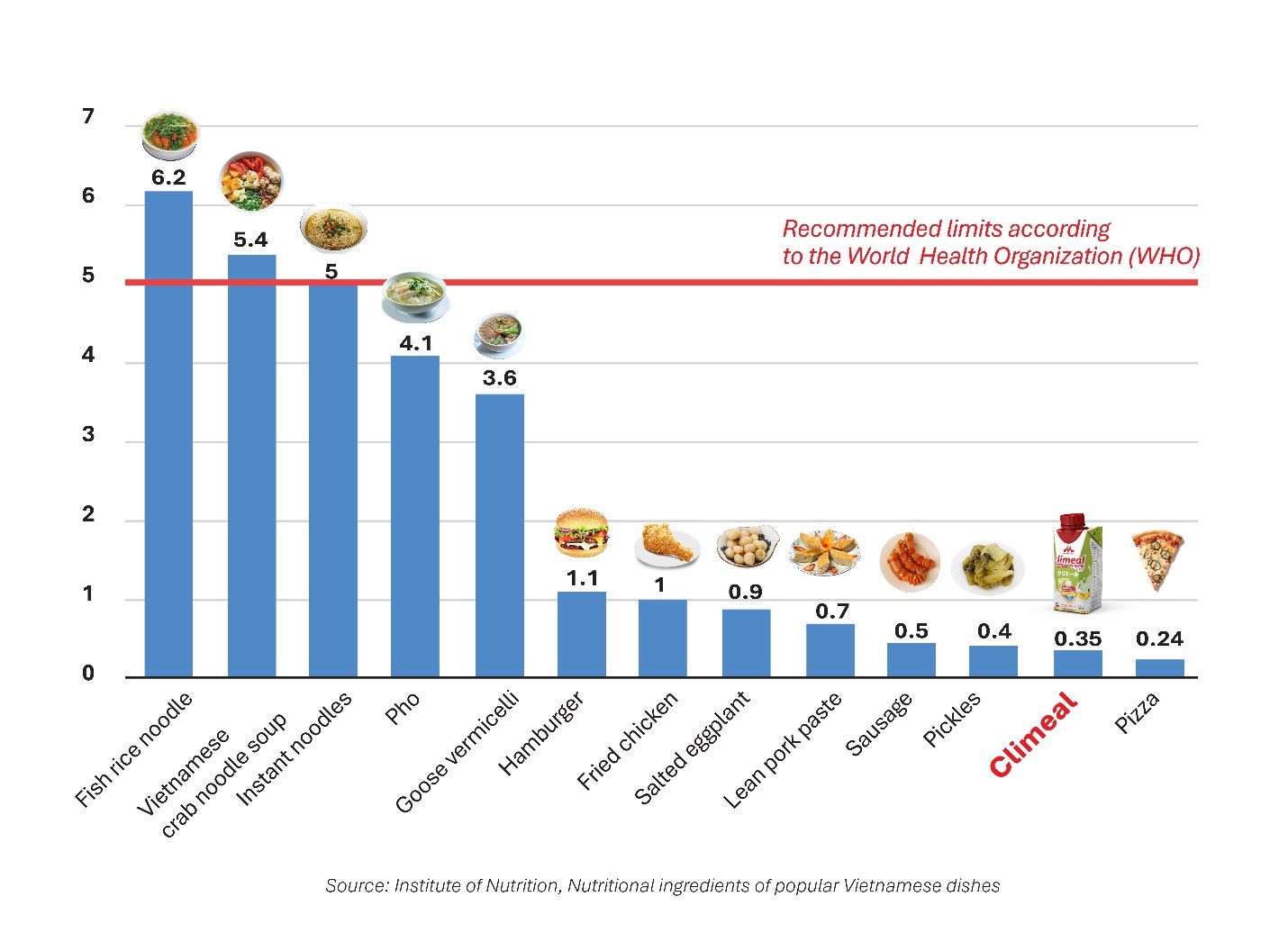The hidden risks of a high-salt diet among Vietnamese consumers
In the hustle and bustle of daily life, it’s easy to overlook the hidden risks in our eating habits. For many Vietnamese adults, a preference for salty foods has become the norm, with fish sauce, soy sauce, and pickled vegetables playing a central role in most meals. While these traditional flavors are beloved by many, the consequences of excessive salt consumption can be severe.
Recent studies have highlighted an alarming trend: over-salting is silently harming our health and contributing to a range of preventable chronic diseases, all of which could be mitigated through smarter dietary choices.
Salt and its role in Vietnamese diets
Salt, or sodium chloride, is an essential mineral critical for nerve function, muscle contractions, and maintaining fluid balance in the body. However, problems arise when salt intake exceeds recommended levels. The World Health Organization (WHO) advises a daily salt intake of less than 5 grams. Yet studies indicate that the average adult in Vietnam consumes nearly double that amount. This excessive sodium intake is closely linked to a higher risk of hypertension, cardiovascular diseases, strokes, and even kidney damage.
One primary contributor to the high sodium consumption in Vietnam is the widespread use of condiments like fish sauce, which contains a significant amount of sodium. A single tablespoon of fish sauce can contain up to 1,420 mg of sodium, more than half of the recommended daily limit. Coupled with added salt in cooking and sodium from processed foods, daily consumption levels can quickly spiral out of control.
A 2022 study by Vietnam’s National Institute of Nutrition painted a concerning picture, revealing that 60% of the population consumes sodium at unsafe levels. This issue is not merely a dietary challenge but a pressing public health concern.
Balanced eating: A key to a healthier life?

Understanding the risks is the first step toward making healthier choices. But what can be done to combat this “silent killer”? The answer lies in adopting a balanced diet rich in fruits, vegetables, whole grains, and lean proteins, alongside monitoring sodium intake. Reducing reliance on high-sodium condiments and processed foods is crucial, as is educating the public on the importance of moderation.
Additionally, balanced nutritional supplements offer a convenient and effective solution for maintaining proper dietary habits. These products can provide essential nutrients while helping reduce reliance on salt-heavy meals, especially for those with busy lifestyles.
Balanced eating does not mean abandoning Vietnam’s cherished traditional flavors. Instead, it requires making thoughtful adjustments that align with a healthier lifestyle. For example, instead of heavily relying on fish sauce for flavoring, consider using fresh herbs, spices, and lime juice to enhance taste without adding sodium. Increasing the intake of fruits and vegetables not only lowers sodium consumption but also provides vital nutrients that protect against chronic diseases.
Another critical component of balanced eating is portion control. By managing serving sizes—especially for salty foods—individuals can significantly reduce sodium intake. This approach is supported by a 2023 study published in the Vietnam Medical Journal, which showed participants who practiced portion control reduced their daily sodium intake by 20% and saw improvements in blood pressure levels.
Taking action: Practical steps to a low-sodium diet
The time to act is now. As a society, we must prioritize health by making conscious dietary choices. The Vietnamese government has launched public health campaigns aimed at reducing salt consumption, but individual actions are equally important. Here are a few steps you can take today:
- Read food labels: Pay attention to sodium levels in packaged foods and opt for low-sodium alternatives when possible.
- Cook at home: Preparing meals at home allows better control over salt use. Experiment with herbs and spices to create flavorful dishes without added sodium.
- Limit processed foods: Processed foods often have high sodium levels. Choose fresh, whole foods whenever possible.
- Stay hydrated: Drinking enough water helps the body regulate sodium levels and supports overall health.
- Incorporate nutritional supplements: Balanced nutritional products can help meet dietary needs while maintaining a low-sodium intake, particularly on busy days.
Climeal: A balanced and convenient nutritional solution from Morinaga
Transitioning to a balanced diet may require some adjustments, but the long-term health benefits are undeniable.
Morinaga Milk Industry, a well-known brand in Japan with over a century of research and development, together with its member company in Vietnam, Morinaga Nutritional Foods Joint Stock Company, has introduced Climeal to Vietnamese consumers as a reliable nutritional solution.

More than just a dietary supplement, Climeal embodies Morinaga’s commitment to delivering high-quality, reliable nutritional solutions to Vietnamese consumers. Each serving of Climeal contains approximately 10 billion LAC-Shield® postbiotics-innovatively developed by Morinaga-which have been clinically proven to strengthen the immune system and reduce the risk of common illnesses such as colds and flu.
Packaged in a convenient 190ml serving, each Climeal drink delivers 260 kcal, with a balanced energy ratio of P:L:C = 15:25:60, and 27 essential vitamins and minerals. Importantly, Climeal has a significantly lower sodium content compared to popular Vietnamese dishes like noodle soup, rice vermicelli, and instant noodles (based on the Vietnamese Food Composition Table by the National Institute of Nutrition).
Choosing Climeal as a breakfast replacement or snack option can help reduce sodium intake while supporting a balanced dietary approach. Over time, this can significantly lower the risk of chronic diseases and promote a healthier, happier life.
The salt content in common Vietnamese dishes (g)

In conclusion, while salt is an integral part of Vietnamese cuisine, moderation is key. The evidence is clear: excessive salt intake poses significant health risks, but these risks can be managed with thoughtful dietary choices. By focusing on balanced eating and mindful sodium consumption, we can protect our health and enhance our quality of life. It’s never too late to start making healthier choices—the time to act is now.
Contact Information:
Morinaga Nutritional Foods Vietnam JSC
Head Office: Nam Pho Yen Industrial Zone, Thuan Thanh Commune, Pho Yen Town, Thai Nguyen Province, Vietnam
Website: https://morinaga-nf.com.vn/








